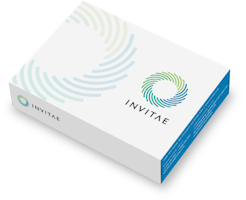
Invitae Elevated C0/(C16+C18) Test
Test code: 06104 •
Test description
The Invitae Elevated C0/(C16+C18) Test analyzes the CPT1A gene, which is associated with elevations of the C0/(C16+C18) acylcarnitine ratio on newborn screening (NBS) or plasma acylcarnitine analysis. Genetic testing of this gene may confirm a diagnosis and help guide treatment and management decisions.
Ordering information
Turnaround time:
10–21 calendar days (14 days on average)New York approved:
YesPreferred specimen:
3mL whole blood in a purple-top EDTA tube (K2EDTA or K3EDTA)Alternate specimens:
Saliva, buccal swab, and gDNA are also accepted.Learn more about specimen requirementsRequest a specimen collection kitClinical description and sensitivity
Clinical description:
Carnitine palmitoyltransferase I (CPT1) deficiency can lead to elevated C0/(C16+C18) acylcarnitine ratio that may be detected during newborn screening or acylcarnitine analysis. Patients with this disorder typically present in early childhood with episodes of hypoketotic hypoglycemia and hepatic encephalopathy during periods of intercurrent illness or increased fasting. Free fatty acids and liver transaminases may be elevated during attacks, but they may also be elevated during asymptomatic periods. Cardiac- and skeletal-muscle involvement is uncommon. Some patients may develop hepatomegaly and renal tubular acidosis. Some cases of sudden infant death syndrome (SIDS) have been attributed to CPT1 deficiency. Milder forms of CPT1 deficiency have been reported.
A low-fat diet with medium-chain triglyceride (MCT) supplementation and an avoidance of fasting have been used to treat patients with CPT1 deficiency. Early diagnosis and detection may improve the long-term outcome of these patients by reducing or preventing attacks of hepatic encephalopathy.
Pregnant females (obligate carriers) of fetuses affected with CPT1 deficiency are at increased risk of developing acute fatty liver of pregnancy. Symptomatic mothers may develop hypoglycemia, elevated LFTs, and hyperammonemia, leading to impaired liver function and coagulopathy.
Assay information
Invitae is a College of American Pathologists (CAP)-accredited and Clinical Laboratory Improvement Amendments (CLIA)-certified clinical diagnostic laboratory performing full-gene sequencing and deletion/duplication analysis using next-generation sequencing technology (NGS).
Our sequence analysis covers clinically important regions of each gene, including coding exons and 10 to 20 base pairs of adjacent intronic sequence on either side of the coding exons in the transcript listed below, depending on the specific gene or test. In addition, the analysis covers select non-coding variants. Any variants that fall outside these regions are not analyzed. Any limitations in the analysis of these genes will be listed on the report. Contact client services with any questions.
Based on validation study results, this assay achieves >99% analytical sensitivity and specificity for single nucleotide variants, insertions and deletions <15bp in length, and exon-level deletions and duplications. Invitae's methods also detect insertions and deletions larger than 15bp but smaller than a full exon but sensitivity for these may be marginally reduced. Invitae’s deletion/duplication analysis determines copy number at a single exon resolution at virtually all targeted exons. However, in rare situations, single-exon copy number events may not be analyzed due to inherent sequence properties or isolated reduction in data quality. Certain types of variants, such as structural rearrangements (e.g. inversions, gene conversion events, translocations, etc.) or variants embedded in sequence with complex architecture (e.g. short tandem repeats or segmental duplications), may not be detected. Additionally, it may not be possible to fully resolve certain details about variants, such as mosaicism, phasing, or mapping ambiguity. Unless explicitly guaranteed, sequence changes in the promoter, non-coding exons, and other non-coding regions are not covered by this assay. Please consult the test definition on our website for details regarding regions or types of variants that are covered or excluded for this test. This report reflects the analysis of an extracted genomic DNA sample. In very rare cases, (circulating hematolymphoid neoplasm, bone marrow transplant, recent blood transfusion) the analyzed DNA may not represent the patient's constitutional genome.
You can customize this test by clicking genes to remove them.
Primary panel
Question about billing?
Find answers